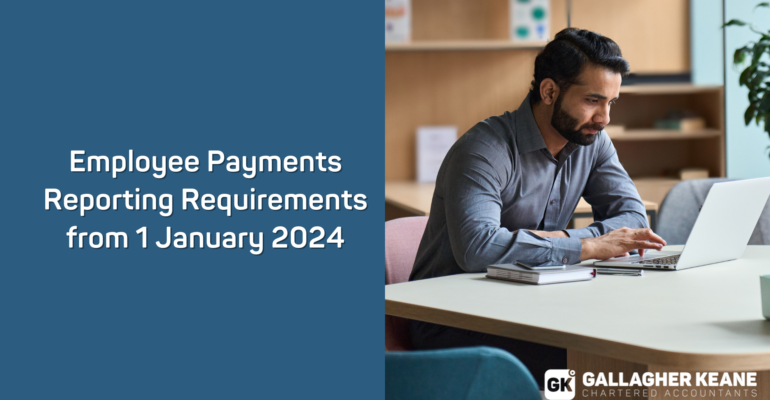Employee Payments Reporting Requirements from 1 January 2024

Employee Payments Reporting Requirements from 1 January 2024
Starting from January 1, 2024, a new rule introduced by the Finance Act 2022 (Section 897C) will require employers to share information about specific payments they make to employees and directors.
If you make any of the listed payments, you’ll need to provide the details through the Revenue Online Service (ROS). Remember, this must be done on or before the date you pay the employee.
Between September and November 2023, Revenue will be hosting webinars to explain these changes. They will send notices via ROS to invite employers to join these events. This is a great opportunity to get a clear understanding of the new reporting requirements.
What information do you need to report?
Phase one applies to any payments made to an employee and/or director falling under the following categories:
Small benefit exemption: Provide the date of payment and the value of the benefit.
Remote Working daily allowance: Report the following:
- Total number of days
- Amount paid
- Date of payment
Travel and subsistence: Submit details of the following items, along with their respective date of payment and amount:
- Vouched travel
- Unvouched travel
- Vouched subsistence
- Unvouched subsistence
- Payments for site-based employees (including “Country money”)
- Emergency travel
- On-site meal expenses
How will you submit payment information to Revenue?
ROS will offer a method for manually submitting Enhanced Reporting Requirements (ERR) details. This process will be similar to the one currently used for payroll reporting.
Stakeholder engagement will be ongoing throughout the year. This initiative was launched in January, with Revenue reaching out to all stakeholders to solicit their participation in implementing this reporting requirement.
Why does Revenue want this information?
This information will:
- Strengthen Revenue’s Compliance Intervention Framework by redirecting resources away from compliant employers.
- Offer high-quality, top-level data to support effective and well-informed policy decisions by the Department of Finance.
- Enhance transparency and assurance for employees regarding non-taxable payments.
Our team at Gallagher Keane will release more information in due course.
Get in Touch:
Get in touch with us for more information:


